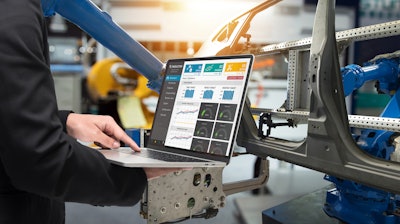
Sustainability has outgrown CSR tokenism to become an integral part of manufacturers’ business agenda. Manufacturing enterprises are embracing sustainable practices not only because they need to comply with regulations or care deeply for the environment or want to save resources but also because their customers, employees and investors expect them to “do what is right.” Respect for environmental and social principles stands at the top of that list.
According to a sustainability survey report by the National Association of Manufacturing (NAM), 80% of its member companies across North America have implemented or are devising sustainability policies and around 76% are taking a product lifecycle approach to sustainability.
Helping manufacturers implement their sustainable policies on the shop floor is a bunch of Industry 4.0 technologies.
Industry 4.0 – A catalyst of sustainable manufacturing
Industrial production consumes a huge volume of material resources, hazardous chemicals, energy and water. It also generates a significant amount of waste and greenhouse gas emissions. Manufacturing can be an exemplar of sustainability by adopting Industry 4.0 towards decarbonization and for building a circular economy.
Digital technologies, such as cloud computing, 3D/4D printing, robotics, Artificial Intelligence (AI) and Machine Learning (ML), empower manufacturing organizations to reimagine their operations while achieving Environmental, Social and Governance (ESG) goals.
Broadly, they can do this by:
Shrinking the environmental footprint
ESG systems based on AI and ML provide real-time data gathered across production operations that manufacturers can analyze to identify processes and practices that are impeding accomplishment of sustainability goals.
This visibility allows them to take green and lean measures to reduce carbon emissions across sourcing, production, packaging, distribution, disposal and business support activities. For example, data on high energy consumption by machines can help identify avenues for wastage reduction.
Enabling sustainable product design
Manufacturing enterprises need to take a product lifecycle approach for decarbonization across the manufacturing value chain. They can then design products aligned with the 4Rs of sustainability, namely, reduce, recover, recycle and reuse.
The production of such goods consumes less energy, extracts up-cyclable materials and components and cuts waste, carbon emissions and pollution. Digital design tools improve the sustainability quotient further by enabling designers to test innovative concepts that reduce resource intensity, minimize the weight and volume of products and enhance 4R value, without significant capital expenditure.
Improving resource utilization
Reducing wastage of raw materials, energy and water is an essential part of an organization’s sustainability policy. Several businesses are leveraging novel manufacturing methods to achieve their ESG objectives.
For instance, Pratt & Whitney eliminated 90 percent of ingots used in jet engine blades. This resulted in a considerable decline in raw material wastage and factory emissions.
Further, an Industry 4.0 ecosystem empowers manufacturers to collaborate within and beyond the enterprise to make better use of natural resources and promote carbon efficiency.
AI-driven automation makes warehousing and logistics operations smarter by optimizing the delivery route of transportation management systems in real-time; it also helps conserve resources and minimize waste.
Besides, with AI systems, manufacturers can develop new practices and alternative models to maximize operational efficiency.
Last but not the least, IoT systems enable a circular economy, based on the principles of reduce, reuse and recycle. With IoT-powered solutions, organizations can not only cut down energy costs and carbon emissions but also determine and extend the useful life of assets, and thus, ascertain reusability.
Summary
Sustainability is not only a social responsibility, but a critical business priority of manufacturers today. With the help of Industry 4.0 technologies, manufacturing organizations can drive sustainability across the value chain to serve their own as well as their stakeholders’ interests.
Jasmeet Singh is the executive vice president and global head of manufacturing at Infosys.























